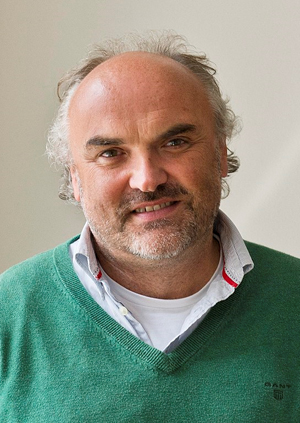
Staněk: The reasons for Fajtl's dismissal arose from three years of inspections
 |
Whether Zeman will accept Staněk's resignation is still unclear. Prime Minister Andrej Babiš (ANO) stated that if he did not want to accept Staněk's resignation, he was ready to propose the minister's dismissal. Filip is going to Zeman with a plea for Staněk, believing, among other things, that if Staněk leaves, the dispute over the Český Krumlov theater revolving stage would continue. Staněk recently decided to keep the revolving stage in the castle garden. Filip is a member of parliament for South Bohemia.
The president of the Czech National Committee of the International Council on Monuments and Sites (ICOMOS) Václav Girsa told ČTK today that the ministry's stance is in conflict with the Czech Republic's commitment to relocate the unsuitable object of the revolving stage from the unique garden. "There is a solution to build a new rotating auditorium with the necessary facilities outside the castle garden, but in its immediate vicinity. The current theater auditorium is at the end of its lifespan; repairing or constructing a new one at the same location would end theater productions in Český Krumlov for several years, which is absurd and arrogant," he stated. Many ministers before Staněk were in favor of placing the stage outside the garden.
Staněk dismissed Fajt along with the director of the Olomouc Museum of Art, Michal Soukup, in mid-April, citing significant errors in the economic activities of both institutions. Regarding Fajt, he particularly criticized a contractual agreement for over a million crowns that the then-director paid himself for curatorial work on exhibitions and displays.
According to Fajt's lawyer, František Vyskočil, the reasons for the dismissal are either based on untruths or "distort the true factual basis and draw illegal value judgments from it." "The consequence of such conduct is a gross violation of the client's (Fajt's) honor, discrediting his name and professional reputation," Vyskočil stated. He also criticizes the minister for not giving Fajt the opportunity to respond to the alleged shortcomings. According to Vyskočil, Staněk jeopardized Fajt's position in both the Czech Republic and abroad, where Fajt also operates.
No later than within seven days, in a letter published on May 21, he demanded the publication of an apology on the Ministry of Culture's website. If this does not happen, Vyskočil is authorized to proceed legally.
Today, Staněk wrote that he dismissed Fajt after careful consideration and consultation with his advisors. He reiterated that a minister must act if serious facts arise suggesting that "there could be violations of the law or other unlawful conduct." The situation at the National Gallery in Prague fully met these criteria, he stated. He added that the concern about the violation of laws and other regulations at the NGP was also shared by Transparency International.
The English translation is powered by AI tool. Switch to Czech to view the original text source.
0 comments
add comment
Related articles
0
05.08.2020 | The committee recommended three candidates for the director of NGP to the Minister of Culture
0
17.06.2020 | The deadline for applications for the position of head of the NGP is approaching, Fajt is applying
0
17.06.2020 | Today is the deadline for submitting applications for the competition for the head of the NGP
0
08.05.2020 | The petition demands the return of Fajt to the head of the National Gallery
0
06.05.2020 | The state apologized to Jiří Fajt for his dismissal from the head of the National Gallery
0
05.05.2020 | The police dismissed the criminal complaint against the former director of NG Fajt
0
21.08.2019 | Babiš asked Zeman for a quick solution to the problem with the Minister of Culture
0
14.05.2019 | After Fajta's dismissal, one of the heads of the NGP collections resigned
0
18.04.2019 | Staněk dismissed two directors, filed two criminal complaints against Fajt
0
18.04.2019 | The minister has apparently dismissed the director of the NGP and the Museum of Arts in Olomouc
2
03.04.2019 | The minister has agreed with the Museum of Art on a competition for SEFO
0
25.03.2019 | The governor has intervened in the dispute regarding SEFO, he will be the mediator
14
24.03.2019 | The Olomouc Museum violated the law in the SEFO project
0
30.06.2014 | The management of the National Gallery will be taken over by Jiří Fajt on Tuesday









